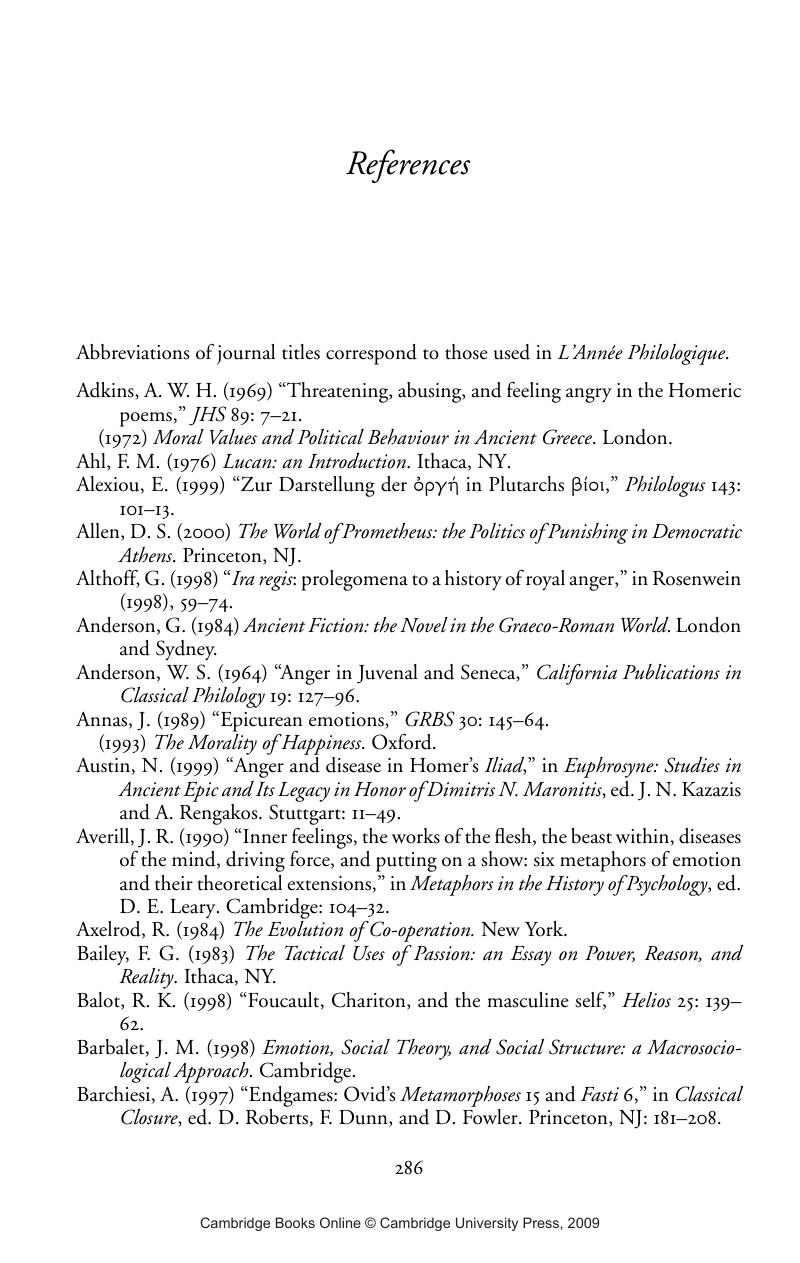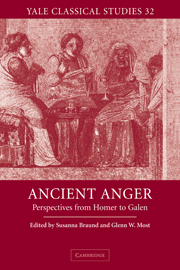Book contents
- Frontmatter
- Contents
- Notes on contributors
- Acknowledgments
- List of abbreviations
- Introduction
- Chapter 1 Ethics, ethology, terminology: Iliadic anger and the cross-cultural study of emotion
- Chapter 2 Anger and pity in Homer's Iliad
- Chapter 3 Angry bees, wasps, and jurors: the symbolic politics of ὀργή in Athens
- Chapter 4 Aristotle on anger and the emotions: the strategies of status
- Chapter 5 The rage of women
- Chapter 6 Thumos as masculine ideal and social pathology in ancient Greek magical spells
- Chapter 7 Anger and gender in Chariton's Chaereas and Callirhoe
- Chapter 8 “Your mother nursed you with bile”: anger in babies and small children
- Chapter 9 Reactive and objective attitudes: anger in Virgil's Aeneid and Hellenistic philosophy
- Chapter 10 The angry poet and the angry gods: problems of theodicy in Lucan's epic of defeat
- Chapter 11 An ABC of epic ira: anger, beasts, and cannibalism
- References
- Index of passages cited
- Index of proper names
- Index of topics
- References
References
Published online by Cambridge University Press: 22 September 2009
- Frontmatter
- Contents
- Notes on contributors
- Acknowledgments
- List of abbreviations
- Introduction
- Chapter 1 Ethics, ethology, terminology: Iliadic anger and the cross-cultural study of emotion
- Chapter 2 Anger and pity in Homer's Iliad
- Chapter 3 Angry bees, wasps, and jurors: the symbolic politics of ὀργή in Athens
- Chapter 4 Aristotle on anger and the emotions: the strategies of status
- Chapter 5 The rage of women
- Chapter 6 Thumos as masculine ideal and social pathology in ancient Greek magical spells
- Chapter 7 Anger and gender in Chariton's Chaereas and Callirhoe
- Chapter 8 “Your mother nursed you with bile”: anger in babies and small children
- Chapter 9 Reactive and objective attitudes: anger in Virgil's Aeneid and Hellenistic philosophy
- Chapter 10 The angry poet and the angry gods: problems of theodicy in Lucan's epic of defeat
- Chapter 11 An ABC of epic ira: anger, beasts, and cannibalism
- References
- Index of passages cited
- Index of proper names
- Index of topics
- References
Summary

Information
- Type
- Chapter
- Information
- Ancient AngerPerspectives from Homer to Galen, pp. 286 - 305Publisher: Cambridge University PressPrint publication year: 2004
